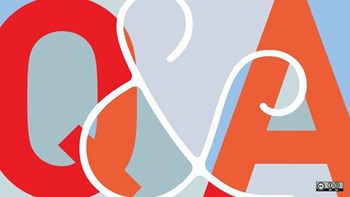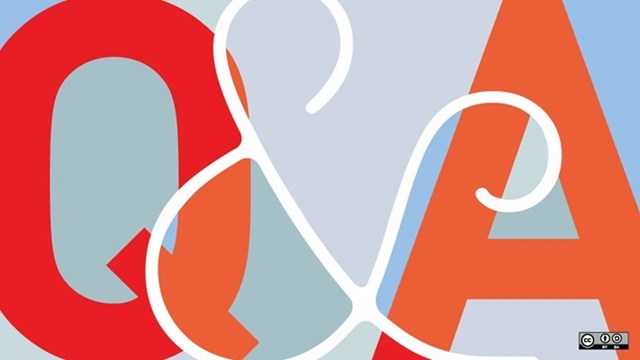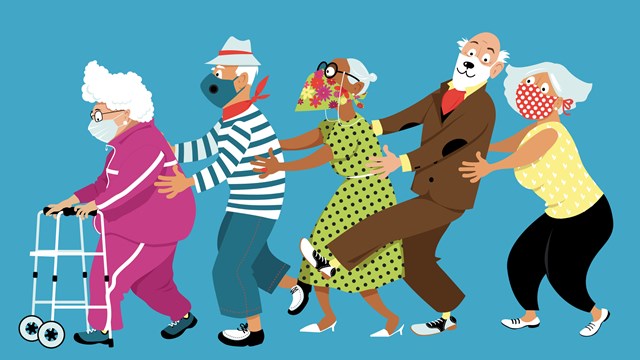
Q. I am a trustee for a small over-55 active adult condominium association in central Massachusetts. We would like some guidance/information on how other associations have handled the issue of underage relatives moving in with their parents—specifically, the issue of the underage child needing housing for hardship or long-term illness that is not terminal.
We are trying to set up some guidelines. We do have the six-week maximum stay with the resident in our documents and have added that trustee permission is required for a longer stay. Residents do not let us know that the child will be staying longer until well past the six weeks. How do others deal with this? If it is a medical issue, are we allowed to get basic documentation of the condition to avoid fraud? Does the document get sent to the management company? We do not want to know all the details. At what age do we say that child is too young to move in, given that we are and want to stay an over-55 community? We want to be fair to all of our residents.
—Staying Alive at 55
A. “At a minimum to qualify and maintain your 55 and over status with Housing and Urban Development (HUD),” says Pamela Jonah, an attorney with Goodman, Shapiro & Lombardi in Dedham, MA, “you must show the following:
“a) at least 80 percent of the occupied units must be occupied by at least one person 55 years of age or older per unit;
“b) the owner or management of the housing facility/community must publish and adhere to policies and procedures that demonstrate an intent to provide housing for persons 55 years or older; and
“c) the facility/community must comply with rules issued by the secretary for verification of occupancy through reliable surveys and affidavits.
“In general, I would not suggest deviating from a restriction on age of occupants and time, allowing an extended stay without amending the documents. It is important that a board enforce restrictions in the association’s documents as written or they may face complaints of selective enforcement or perhaps even a ruling by HUD that the intent to provide housing for persons over 55 years or older is not being adhered to.
“However, there is an exception in the law when an association must consider a waiver of the age/time restriction, and that is when a resident requires what is referred to as a reasonable accommodation for a live-in attendant or health care provider or family care provider based on a disability.
“The exception is governed by the Fair Housing Act which is codified at 42 U.S.C. §§ 3601 – 3619 and in Massachusetts by M.G.L. c. 151B. The law requires the board of an association to engage in what is referred to as an interactive process whereby the resident requesting the accommodation may be asked to provide medical documentation that it is the opinion of a medical provider:
“1. That the resident or applicant has a disability that meets the definition of a disability under the Fair Housing Act i.e. limits one or more major life activities; and
“2. That the resident’s or applicant’s disability requires changes to the rules, regulations, policies and/or procedures of the condominium be made in order for the resident or applicant to have equal opportunity to live successfully in this housing.
“This area of the law is ripe with many pitfalls in terms of what a board may require, ask and not ask the resident seeking the accommodation. Therefore, it is recommended that a board faced with this type of request obtain legal advice. In fact, the law does not require the opinion to come from a doctor; nurses and other treater’s opinions may satisfy the requirements under the law.
“Some but not all of the types of questions a board may not ask are the following:
1. The board may not ask for a medical provider’s opinion if the disability is open and obvious; and
2. They also may not ask a resident specifically what the disability is.
3. A board may not ask for copies of the resident’s medical records. If the medical provider has provided an opinion in accordance with the law, that is all the resident needs to provide.
“If a resident who has asked for the accommodation has provided the documentation required by the law that meets the standards prescribed then in almost all circumstances the board must grant the accommodation, i.e. the waiver of the age/time and underage person may occupy the unit restriction.
“Under the law, the attendant or health care provider or family care provider is excluded from the 80/20 calculation prescribed by HOPA in its entirety. This is true whether the live-in person resides in the same unit with the disabled occupant or in a separate unit. Neither circumstance adversely affects the exemption of the housing facility/community.”






Leave a Comment